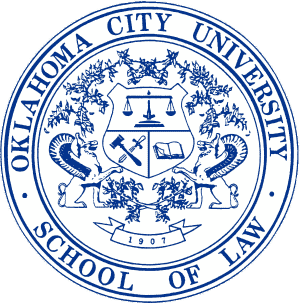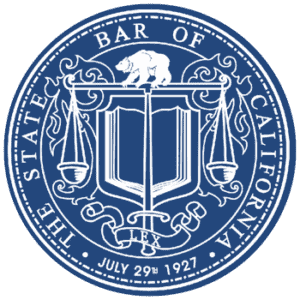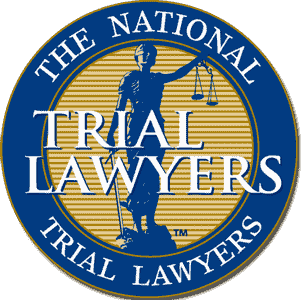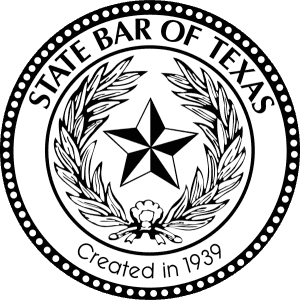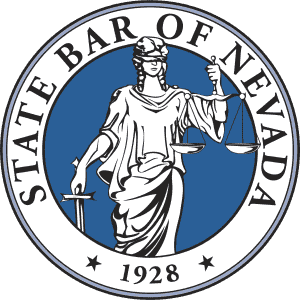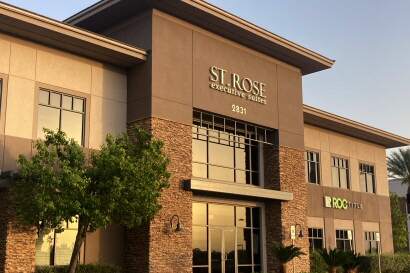HOW DID OUR GOVERNOR GET SO MUCH POWER
Estimated Reading Time: 11minutes
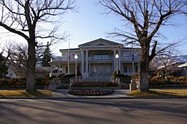
Our Govern has sweeping powers over our state granted by our legislature.
To find out how and why, check out this week’s Blog.
POWER OF NEVADA GOVERNOR
- The Nevada Governor is granted broad power by NRS 414.070;
- He can order the evacuation of any stricken areas in the state;
- He can exercise “all powers necessary” to promote safety and protection;
- He can allow medical professionals licensed in other states but not NV to practice;
- He can sell, lend, lease, or give materials or perform services for the purpose of emergency management.
You may find yourself, like many of us, asking how did the governor become so powerful. It seems like we have a dictator instead of a democratically elected official. This thought has crossed my mind as well. Maybe a two week quarantine at the governor’s order with a subsequent vote by the legislature seems like a little more democratic process. However, that is not the law or the process in the state of Nevada, as you have probably observed over these past two months. There is, in fact, law on the books in Nevada which, yes was voted on by the legislature a long time ago, allowing the governor to declare a state of emergency.
There are two pieces of the law that gave governor Sisolak this authority. The first is a very old supreme court case from 1905 entitled Jacobson vs Massachusetts 197 US 11 (1905). That case was brought to the Supreme Court during the nationwide smallpox outbreak in the early 20th century. In addition, Nevada legislature enacted NRS 414.070 well over 30 years ago.
The statute states that the governor has the power to “perform and exercise such other functions, powers and duties as are necessary to promote and secure the safety and protection of the civilian population.” This is an extraordinarily broad grant of power. Basically, what the governor wants to do he can do if he believes it’s necessary to keep everyone healthy. He has been delegated the power by our state legislature and so that’s his basis in law for being able to shut down our state.
The next question to ask is whether this grant of power by the state legislature is constitutional. It seems unusual for the legislature to be able to dedicate more power than they have. It is a basic rule that state governments, state legislatures, including the state of Nevada, have what’s often called the “police power.” This is the power that they have to protect the public health, safety and morals, whatever that means to different communities. As for the coronavirus, clearly this would be utilizing the issue of protecting public health.
The only limitations on the states police powers are the individual rights of its citizens, guaranteed in either the federal or state constitution. The question here would be one to the right to freedom of choice, basically the right to privacy of sort to make your own choices — the right of due process aka the right of freedom of choice. The applicable place in the United States Constitution would be the 14th amendment, the due process clause.
Therefore, the legal question is “Does the governor’s order violate individual liberties and freedoms that are protected by the 14th amendment.?” This is where the case of Jacobson vs Massachusetts comes in. The legislature in Massachusetts, at the time of the smallpox outbreak, enacted a law that said some towns could require people to be vaccinated and some towns did that at the time. This started the lawsuit that made its way to the supreme court titled Jacobson vs. Massachusetts. In that case, the court upheld the law. The court reasoned that “because smallpox presented such a danger to the public health but it was within the state’s police power to require vaccinations.” The court held that a vaccination can be required and that was a more invasive procedure than closing your business, especially if you have a religious objection to being vaccinated. That being the case, the case of Jacobson vs Massachusetts certainly does suggest that there is constitutional authority to require businesses to close.
If the court were to hear the Jacobson case today, in this context, they would likely apply a higher level of scrutiny to the law. They would be more suspicious and maybe want to hear better evidence as to the reason it was necessary to close businesses down. Even if they did apply a heightened scrutiny and want to know more, it does seem likely, based on the law that the court would find there was a compelling reason why the states shut down businesses to stop the spread of the virus. I believe they would likely uphold the Governors order.
The opponents may argue that there is a better way to protect the public health without being as invasive as closing all businesses. The court may consider this argument. However, the CDC has advised that businesses needed to close and that the best way to accomplish stopping the spread of the virus was to order a lockdown. It does appear likely that the Supreme Court would not hear the case and if they did hear the case, would likely rule that public health outweighed individual rights of due process as they did in 1905.
With the state of politics at such dire odds in this nation at this time, and so many states with Democratic houses and Republican governors or vice versa, I would not be surprised to see some of these legislative or governor orders challenged to the state supreme courts and possibly ultimately to the United States Supreme court again after 115 years has gone by. If that does occur I will certainly update this blog.
The state authority for the Governor’s order is NRS 414.070 and states as follows:
NRS 414.070 Additional powers of Governor during existence of state of emergency or declaration of disaster. The provisions of this section are operative only during the existence of a state of emergency or declaration of disaster. The existence of such an emergency or disaster may be proclaimed by the Governor or by resolution of the Legislature if the Governor in his or her proclamation, or the Legislature in its resolution, finds that an attack upon the United States has occurred or is anticipated in the immediate future, or that a natural, technological or man-made emergency or disaster of major proportions has actually occurred within this State, and that the safety and welfare of the inhabitants of this State require an invocation of the provisions of this section. Any such emergency or disaster, whether proclaimed by the Governor or by the Legislature, terminates upon the proclamation of the termination thereof by the Governor, or the passage by the Legislature of a resolution terminating the emergency or disaster. During the period when a state of emergency or declaration of disaster exists or continues, the Governor may exercise the following additional powers:
1. To enforce all laws and regulations relating to emergency management and to assume direct operational control of any or all forces, including, without limitation, volunteers and auxiliary staff for emergency management in the State.
2. To sell, lend, lease, give, transfer or deliver materials or perform services for the purpose of emergency management on such terms and conditions as the Governor prescribes and without regard to the limitations of any existing law, and to account to the State Treasurer for any money received for such property.
3. Except as otherwise provided in NRS 414.155 and 414.340, to procure, by purchase, condemnation, seizure or other means, construct, lease, transport, store, maintain, renovate or distribute materials and facilities for emergency management without regard to the limitations of any existing law. The Governor shall make compensation for the property so seized, taken or condemned on the following basis:
(a) If property is taken for temporary use, the Governor, within 90 days after the taking, shall fix the amount of compensation to be paid therefor. If the property is returned to the owner in a damaged condition, or is not returned to the owner, the Governor shall fix within 90 days the amount of compensation to be paid for the damage or failure to return the property. If the Governor deems it advisable for the State to take title to property taken under this section, the Governor shall forthwith cause the owner of the property to be notified thereof in writing by registered or certified mail, postage prepaid, or by the best means available, and forthwith cause to be filed a copy of the notice with the Secretary of State.
(b) Within the 90-day period prescribed in paragraph (a), the Governor shall make an offer in writing to the person or persons entitled to receive it of the amount of money proposed to be paid as full compensation. If the offer is accepted, the money must be paid out of such fund, funds or other sources as are available and no further action in law or in equity may ever be maintained in connection therewith. If the offer of payment is refused, the person or persons entitled thereto have the same rights as plaintiffs in actions of eminent domain insofar as the fixing of damages and compensation is concerned, NRS 37.060, 37.070, 37.080 and 37.090, so far as applicable, apply, and proceedings must be had in conformity therewith so far as possible. The action must be commenced within 1 year after the receipt of the offer of settlement from the Governor.
4. To provide for and compel the evacuation of all or part of the population from any stricken or threatened area or areas within the State and to take such steps as are necessary for the receipt and care of those persons.
5. Subject to the provisions of the State Constitution, to remove from office any public officer having administrative responsibilities under this chapter for willful failure to obey an order or regulation adopted pursuant to this chapter. The removal must be upon charges after service upon the officer of a copy of the charges and after giving him or her an opportunity to be heard in his or her defense. Pending the preparation and disposition of charges, the Governor may suspend the officer for a period not exceeding 30 days. A vacancy resulting from removal or suspension pursuant to this section must be filled as provided by law.
6. To authorize providers of emergency medical services and providers of mental health services who are not licensed, certified or registered, as applicable, in this State but hold a license, certificate, registration or similar credential in good standing in another state of the United States, the District of Columbia, the Commonwealth of Puerto Rico or any territory or insular possession subject to the jurisdiction of the United States to practice their profession within their scope of practice as if they were licensed, certified or registered, as applicable, in this State for the amount of time necessary to assist in responding to the emergency or disaster.
7. To perform and exercise such other functions, powers and duties as are necessary to promote and secure the safety and protection of the civilian population.
At the Law Offices of Laura Payne-Hunt, TheOneLawyer, we provide professional and personal service to each and every one of our clients on various legal matters and have over 15 years of experience in reviewing insurance policies and Nevada insurance law. If you have a question regarding any type of personal injury or paying your medical bills from an accident, please don’t hesitate to call the offices of TheOneLawyer.com and speak directly to attorney Laura Marie Payne-Hunt, Esq. a Henderson Injury Attorney for over 15 years. Laura is recognized as one of Nevada’s Top 100 Lawyers. She has the experience and knowledge to obtain the maximum settlement you deserve. Please call our office if you or a loved one is injured. We can make sure that you receive the care you need and deserve and advise on how to preserve evidence.
At our office, we are experienced in helping injured victims get the compensation they are entitled to. Insurance companies never have the best interest of the injured person at the top of their priorities. They want to pay as little on every claim as possible. Having worked for an insurance company as an attorney for 9 years before opening my boutique law firm specializing in helping injured people, I have reviewed thousands of auto accident claims and policy provisions.
At the Henderson and Las Vegas Accident injury law offices of TheOneLaweyer.com, Laura Marie Payne-Hunt and her staff are here to help you and your family in the event that accidents and tragedies occur. For any of your legal needs, do not hesitate to contact our Henderson and Las Vegas Accident injury offices. TheOneLawyer.com is a boutique, family owned law firm that specializes in helping injured people and the community of Las Vegas and Henderson Nevada with legal issues involving auto accidents, wrongful deaths, slip and falls, truck accidents, injuries to children, bicycle accidents, dog bites, product liability claims, and all types of injury claims. Please do not hesitate to call us anytime you have a legal question or you or a loved one has sustained an injury at 702-450-(HUNT) 4868 and text 24/7 at 702-600-0032.

